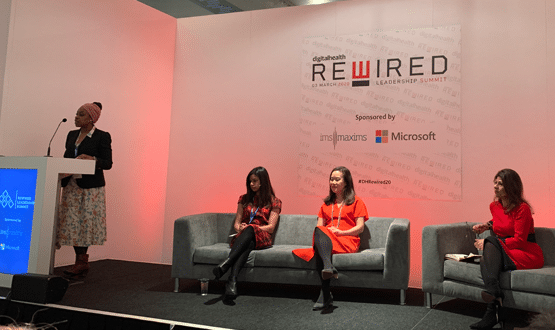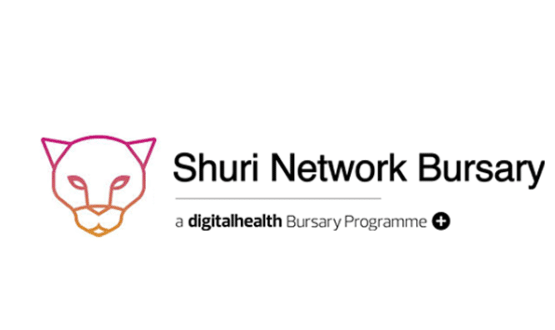The Shuri Network: Diversity ‘cannot be outsourced’
- 3 March 2020

Improving diversity and inclusivity in the NHS is something everyone owns and “cannot be outsourced to HR” – that’s the message from The Shuri Network at the Digital Health Leadership Summit 2020.
Dr Shera Chok, co-founder of the Network and a GP at Tower Hamlets, told the audience at Olympia London on 3 March the NHS was in “grave danger” of losing talented staff if the organisation doesn’t get diversity right.
She said it’s no longer about asking how to improve diversity and inclusion, but rather asking “why has the NHSs taken so long to get this right”.
“You cannot outsource diversity and inclusion to HR, or your BAME networks or your LGBQT networks,” Shera explained.
“This is something we must all own, collectively, if we truly serious about improving patient care and delivering our digital health objectives and aims.”
Speaking on the low level of women of BAME in CCIO, CIO and CNIO roles – only 6 CCIO and CIOs are BAME women despite 77% of the NHS workforce being female – Shera warned many people are now creating “very different careers” spanning the public and private sector.
“We are in grave danger of losing a huge talent pool if we don’t get smarter about helping people follow careers than span the NHS and the private sector,” Shera said.
Providing at update on the Network’s activity since it’s launch at Digital Health Summer Schools in July 2019, Dr Chok said they have held their first network meetings, advised NHSX and NHSE, participated in podcasts and webinars and now have more than 480 members across the country.
“We’re here to help the NHS innovate, we’re here to help the NHS deliver their innovative objectives and we are here to improve patient safety,” she added.
She said the message from those wanting to get involved has been clear.
“We have to demystify the digital hierarchy and change perceptions of who is in digital because it’s not the IT team who is in digital, it’s all of us,” Shera said.
“We also need to provide opportunities within trusts and primary for networking, shadowing and sponsorship.”
Providing role models
Rafiah Badat, a speech and language therapist and National Institute for Health Research (NIHR) clinical doctoral research fellow at City University, London, told the audience that as an Asian woman she represents just 6% of those working in her field.
She said the “role models” at The Shuri Network had provided a space for her to learn from others in order to improve diversity and inclusion work within her own organisation.
“First and foremost, it’s having mentors. People who I can speak to and have frank conversations with,” she said.
“Quite often it’s not about individual experiences that I’ve had, it’s about the broader picture.”
In her first public speech since being announced as the new NHSX CIO, Sonia Patel, joint CCIO – London North West University Healthcare Trust and The Hillingdon Hospitals, said diversity in the NHS needs to start looking as varied pizza menu.
“I don’t see myself as different, I see myself as authentic,” she said.
Dr Ijeoma Azodo, honorary clinical tutor at University of Edinburgh, offered a list practical list of objectives organisations can do to foster diversity within their workforce.
Build great teams; ask powerful questions; value and support individuals, she said.
“Diversity, equity and inclusion are all in the service of innovation, not just personal development, not just professional development,” Ijeoma said.
“It’s really about trying to get to the next level of what the essential and desirable aspects of these products and services and technology that we are going to use to transform healthcare.”
Referring back to TechUK president Jaqueline de Rojas’s keynote, which mentioned the unintended consequences of AI, Ijeoma reminded the audience that diversity needs to be included in technology from conception to implementation.
A final piece of advice
Shera left the audience with a final piece of advice: Take risks.
“Tap someone on the shoulder who isn’t your usual subject because they might do a fantastic job,” she said.




